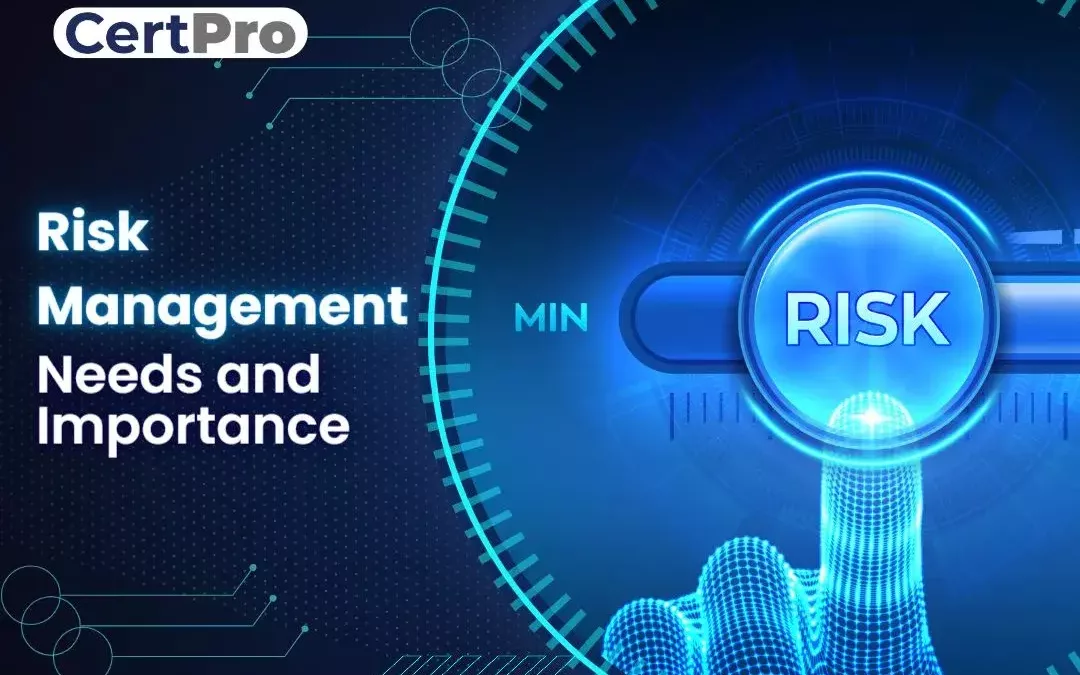Enhancing Operational Efficiency Through the Importance of Risk Management
Enhancing Operational Efficiency Through the Importance of Risk Management
Blog Article
The Significance of Understanding the Value of Risk Management in Numerous Industries

The Core Concept of Risk Management and Its Purpose
Risk Management, the foundation of numerous industries, hinges on the identification, analysis, and mitigation of uncertainties in a service setting. It is an essential method that enables organizations to secure their possessions, online reputation, and general survival. By properly recognizing potential risks, companies can develop techniques to either avoid these risks from occurring or lessen their effect. The evaluation process involves evaluating the chance and potential seriousness of these dangers. As soon as risks have been identified and examined, the mitigation procedure entails developing strategies to reduce their possible effect. This process is cyclical and ongoing, guaranteeing that services are gotten ready for the ever-changing nature of Risk in different sectors. The key purpose, thus, is to foster resilience among unpredictabilities.
Advantages of Implementing Risk Management in Company Procedures

Revealing the Role of Risk Management in Different Industries
While every industry challenges its special set of threats, the application of Risk Management strategies continues to be a common measure in their pursuit of sustainability and development. In the healthcare market, Risk Management entails making sure person safety and data defense, while in financing, it involves mitigating investment threats and making certain regulatory conformity (importance of risk management). Building and construction companies concentrate on employee security, task hold-ups, and spending plan overruns. In the technology field, firms mitigate cybersecurity hazards and modern technology obsolescence. Inevitably, the duty of Risk Management across sectors is to determine, assess, and alleviate risks. It is an essential part of calculated preparation, making it possible for organizations to safeguard their possessions, make the most of chances, and attain their objectives.
Real-life Study Demonstrating Successful Risk Management
To understand the relevance of Risk Management in these several markets, one can want to several real-life circumstances that highlight the successful application of these measures. In the power sector, British Oil created Risk mitigation plans post the 2010 Gulf of Mexico oil spill. They carried out far better security procedures and stricter policies which dramatically minimized further mishaps. In finance, Goldman Sachs successfully navigated the 2008 economic crisis by determining potential her response mortgage-backed protections threats early. Toyota, publish the 2011 earthquake in Japan, changed its supply chain Management to decrease disruption threats. These instances demonstrate exactly how markets, discovering from crises, effectively applied Risk Management techniques to minimize future risks.
Future Patterns and Developments in Risk Management Approaches
As the world continues to progress, so as well do the trends and advancements in Risk Management approaches. Fast developments in innovation and information analytics are reshaping the Risk landscape. Huge data and AI are currently instrumental in forecasting and minimizing threats. Organizations are leveraging these devices to develop learn this here now predictive models and make data-driven decisions. Cybersecurity, as soon as a peripheral issue, has actually catapulted to the center of Risk Management, with strategies focusing on discovery, response, and avoidance. The combination of ESG (Environmental, Social, Administration) variables into Risk Management is another growing fad, showing the increasing acknowledgment of the function that social and ecological risks play in organization sustainability. Hence, the future of Risk Management hinges on the fusion of sophisticated technology, innovative methods, and an all natural approach.
Verdict
In conclusion, understanding the significance of Risk Management across a spectrum of sectors is essential for their durability and success. Customized methods can help reduce prospective dangers, secure possessions, and foster stakeholder depend on. Additionally, aggressive decision-making aids in regulatory conformity and enhances resource use. Eventually, successful Risk Management contributes to more durable and sustainable organizations, highlighting the significance of this practice in today's vibrant and very competitive company environment.
While every market challenges its special collection of risks, the application of Risk Management methods remains a common in their search of sustainability and development. In the health care field, Risk Management involves making certain individual security and information defense, while in money, it includes mitigating financial investment risks and guaranteeing regulative compliance. Eventually, the duty of Risk Management throughout markets is to recognize, evaluate, and mitigate dangers. These situations demonstrate how markets, discovering from situations, effectively applied Risk website link Management methods to reduce future threats.

Report this page